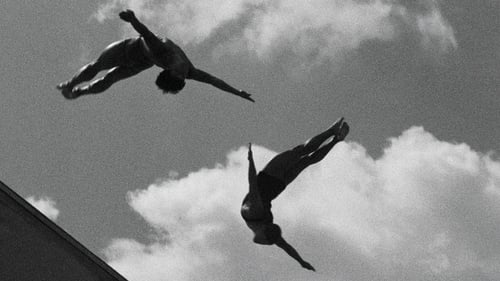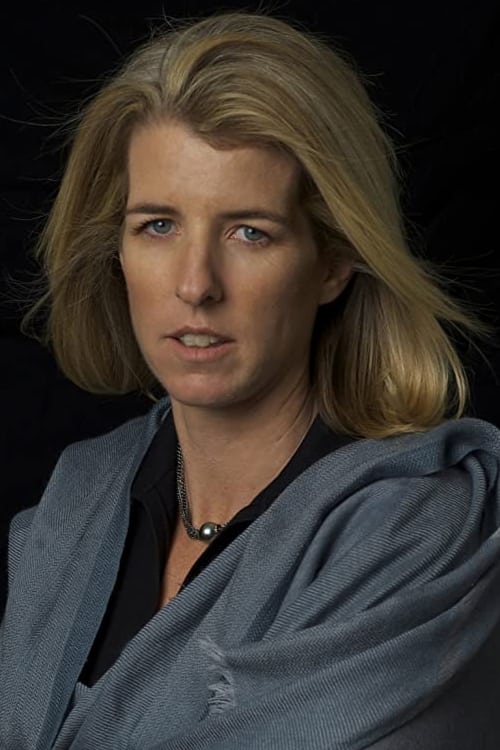Girlhood (2003)
Genre : Documentary, Crime
Runtime : 1H 22M
Director : Liz Garbus
Synopsis
Documentary chronicling America's justice system. Follows two female inmates – victims of horrific violence and tragedy – who are serving time in a Maryland juvenile detention center.

As the title implies, this documentary is educational and aimed at helping parents learn to untangle fact from fiction concerning homosexual people. The film is taken from educational session that took place in seven elementary and middle schools from around the country that each participated a frank workshop for students discussing homosexuality with the hope of eradicating myths and promoting tolerance and understanding. During each session, gay people offer brief lectures and question and answer periods for the children. Also include in the film is a segment in which teachers themselves argue the place of the issue in their curriculum.

The First part of Olympia, a documentary about the 1936 Olympic games in Berlin by German Director Leni Riefenstahl. The film played in theaters in 1938 and again in 1952 after the fall of the Nazi Regime.

The Second part of Olympia, a documentary about the 1936 Olympic games in Berlin by German Director Leni Riefenstahl. The film played in theaters in 1938 and again in 1952 after the fall of the Nazi Regime.

An autobiographical document about an amazing couple, and the healing powers of love and music.

In the last days of 1999, ex-cop turned street hustler Lenny Nero receives a disc which contains the memories of the murder of a prostitute. With the help of bodyguard Mace, he starts to investigate and is pulled deeper and deeper in a whirl of murder, blackmail and intrigue. Can the pair live to see the new millennium?

Through the prism of a beauty pageant staged by female inmates of a Siberian prison camp emerges a complex narrative of the lives of the first generation of women to come of age in Post-Soviet Russia. Miss GULAG explores the individual destinies of three women: Yulia, Tatiana, and Natasha, all bound together by long prison sentences and circumstances that have made them the vigilantes of their own destinies. For these women, undoubtedly, life is harsh under the constant surveillance of UF-91/9, but it is no less so on the outside. Today they, their families, and loved ones are sustained by hope for a better life upon release. This is a story of survival told from both sides of the fence.

Freely adapted from Gabriel García Márquez's Chronicle of a Death Foretold, the film follows the investigation of a local teacher's murder in a small and desperately poor rural village, the story of the crime gradually pieced together from the fragmented memories of witnesses forced to testify at an inquest. Sharing with her Fifth Generation colleagues Chen Kaige and Tian Zhuangzhuang a remarkable eye for the barren landscapes of northern China and a fascination with small-town life — especially those enduring superstitions that Communism failed to erase — director Li Shaohong also introduces several formal innovations, particularly in storytelling structure, that remain unprecedented in Chinese cinema.

This is the untold story behind History, a well-kept secret behind the world-wide icon: Nelson Mandela's release was a Plot for Peace. For the first time, heads of state, generals, diplomats, master spies and anti-apartheid fighters reveal how Africa's front line states helped end apartheid. Their improbable key to Mandela's prison cell was a mysterious French businessman, dubbed "Monsieur Jacques" in classified correspondence. His trade secret was trust


This iconic American story was written in 1900 by L Frank Baum, a Chicago businessman, journalist, chicken breeder, actor, boutique owner, Hollywood movie director and lifelong fan of all things innovative and technological. His life spanned an era of remarkable invention and achievement in America and many of these developments helped to fuel this great storyteller's imagination. His ambition was to create the first genuine American fairytale and the story continues to fascinate, inspire and engage millions of fans of all ages from all over the world. This documentary explores how The Wonderful Wizard of Oz has come to symbolise the American Dream and includes previously unseen footage from the Baum family archives, still photographs and clips from the early Oz films, as well as interviews with family members, literary experts and American historians as it tells the story of one man's life in parallel to the development of modern America.

In the anarchic town of Seaside, nowhere near the sea, puppeteers Judy and Punch are trying to resurrect their marionette show. The show is a hit due to Judy's superior puppeteering but Punch's driving ambition and penchant for whisky lead to an inevitable tragedy that Judy must avenge.

Sex sells. What sells even more? Insecurity. Multi-billion dollar industries saturate our lives with images of unattainable beauty, exporting body hatred from New York to Beirut to Tokyo. Their target? Women, and increasingly men and children. "The Illusionists" turns the mirror on media, exposing the absurd, sometimes humorous, and shocking images that seek to enslave us.

A documentary on the once promising American rock bands The Brian Jonestown Massacre and The Dandy Warhols. The friendship between respective founders, Anton Newcombe and Courtney Taylor, escalated into bitter rivalry as the Dandy Warhols garnered major international success while the Brian Jonestown Massacre imploded in a haze of drugs.

In the Realms of the Unreal is a documentary about the reclusive Chicago-based artist Henry Darger. Henry Darger was so reclusive that when he died his neighbors were surprised to find a 15,145-page manuscript along with hundreds of paintings depicting The Story of the Vivian Girls, in What is Known as the Realms of the Unreal, of the Glodeco-Angelinnian War Storm, Cased by the Child Slave Rebellion.

Four young women joined the Resistance to fight Nazi oppression and brutality in occupied France. They were arrested and deported to Ravensbruck concentration camp, where they helped each other to survive. SISTERS IN RESISTANCE captures their recollections and the intense friendship that has survived with them.

The economists behind the implementation of the most extreme capitalist system in the world observe with surprise the discontent of its countrymen. For the first time, they tell the story of how they became Milton Friedman's students in Chicago in the 1950s and what were they willing to do to pursue their extreme economic ideas, aided by Pinochet's dictatorship in the 70s. Unseen images and testimonies that allow us to understand the historic process that transformed the Chilean people and Chile in the country that it is today, an image of success and discontent.

In 1979 José Efraín Ríos Montt became a reborn Christian. He was offering a sermon when a group of soldiers burst into his Christian school, and asked him to lead a military coup in 1982. Francisco Chavez Raymundo and his sister were small children when Rios' political actions annihilated their community. In March, 2013 the lives of Francisco Chavez and Rios Montt converge in the same space. Rios is called upon to testify before Guatemalan justice and is confronted by a group of Mayan Ixiles, orphans and widows of the war, Francisco is one of them.

It's a music documentary that tells the story of Roy Gurvitz, who created Lost Vagueness, at Glastonbury and who, as legendary founder, Michael Eavis says, reinvigorated the festival. With the decadence of 1920's Berlin, but all in a muddy field. A film of the dark, self-destructive side of creativity and the personal trauma behind it.

A moving documentary. The life stories told by immigrants in Paris are often saddening. The hardships they went through and their current uncertainty and difficult situation. No residence permit, fear of the gendarmerie, little money, poor housing. The quality and background of the musicians is many times amazing.

This documentary is an offbeat "road movie" in which acclaimed documentarian Heddy Honigmann travels with, and thereby discovers the stories of, taxi drivers in Lima. In the early 1990s, in response to Peru's inflationary economy and a government destabilized by corruption and Shining Path terrorism, many middle-class professionals used their own cars to moonlight as taxi drivers in order to weather the financial crisis.














